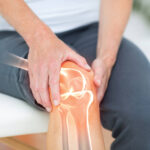Our liver, one of the largest organs in our body, is often likened to a silent workhorse. Responsible for over 500 essential tasks, including detoxifying chemicals, metabolizing drugs, and producing essential proteins and enzymes for digestion, its health is pivotal to our well-being. However, like any workhorse, it can become overburdened and show signs of stress. Recognizing these signs early can make a significant difference in managing liver health.
1. Jaundice:
One of the most noticeable signs of liver distress is jaundice, where the skin and whites of the eyes take on a yellowish hue. This discoloration results from bilirubin, a yellow compound, building up in the bloodstream due to the liver’s inability to break it down. Along with skin changes, jaundice may be accompanied by itching. To support the liver:
- Reduce alcohol intake.
- Avoid over-the-counter pain killers and follow medication guidelines.
- Regular check-ups with a doctor are essential.
2. Dark Urine and Pale Stools:
A healthy liver produces bile, which helps in the digestion of fats and gives stools their brown color. When the liver is under stress, one might notice darker urine and lighter, clay-colored stools. This can indicate a bile duct blockage or liver issues. For liver health:
- Stay hydrated.
- Limit alcohol and caffeine.
- Consult with a doctor if symptoms persist.
3. Swelling in Legs and Abdomen:
Liver stress can lead to problems with protein production, causing fluid buildup in the legs (edema) and abdomen (ascites). This can manifest as swelling and a feeling of heaviness. To reduce swelling:
- Reduce salt intake.
- Elevate legs when resting.
- Wear compression stockings if recommended.
4. Chronic Fatigue:
While tiredness can result from numerous causes, persistent fatigue can indicate liver stress. The liver plays a crucial role in turning glucose into energy; when compromised, it can lead to feelings of constant weariness. To rejuvenate:
- Prioritize sleep.
- Limit refined sugars and opt for whole foods.
- Consider liver-supporting herbs, such as milk thistle, after consultation with a healthcare professional.
5. Loss of Appetite and Nausea:
When the liver struggles, it might not produce enough bile for digestion, leading to a loss of appetite and feelings of nausea. This can also result in unintended weight loss. To support the liver:
- Eat smaller, frequent meals.
- Opt for easily digestible foods like soups and broths.
- Ginger tea can help alleviate nausea. Consult with a healthcare professional before incorporating any remedies.
6. Chronic Itching:
Severe liver issues can cause skin to itch, primarily due to bile products being deposited in the skin. This itching can be widespread or localized. For relief:
- Keep the skin moisturized with unscented lotions.
- Bathe in lukewarm water and avoid long hot showers.
- Wear breathable fabrics and avoid irritants.
7. Cognitive Issues:
An overburdened liver can lead to the buildup of toxins in the brain, a condition known as hepatic encephalopathy. Symptoms might include confusion, drowsiness, and slurred speech. For better liver and brain health:
- Reduce alcohol and drug consumption.
- Maintain a balanced diet.
- Seek medical advice if cognitive symptoms persist.
8. Easy Bruising and Bleeding:
The liver produces proteins vital for blood clotting. If it’s damaged, one might bruise or bleed easily due to a decrease in these proteins. To ensure proper clotting:
- Be cautious with activities that can lead to injury.
- Avoid over-the-counter drugs that can exacerbate bleeding.
- Incorporate foods rich in vitamin K, like leafy greens, but consult with a doctor first, to help avoid problematic interactions with certain medications.
Conclusion:
The liver is astoundingly resilient, with the ability to regenerate and repair itself. However, like any organ, it has its limits. Recognizing signs of liver stress is the first step in taking corrective measures and ensuring this vital organ functions optimally. While it’s crucial to seek medical advice for persistent or severe symptoms, lifestyle and dietary choices can play a significant role in supporting liver health. After all, the steps taken to care for our liver today can pave the way for a healthier tomorrow.








